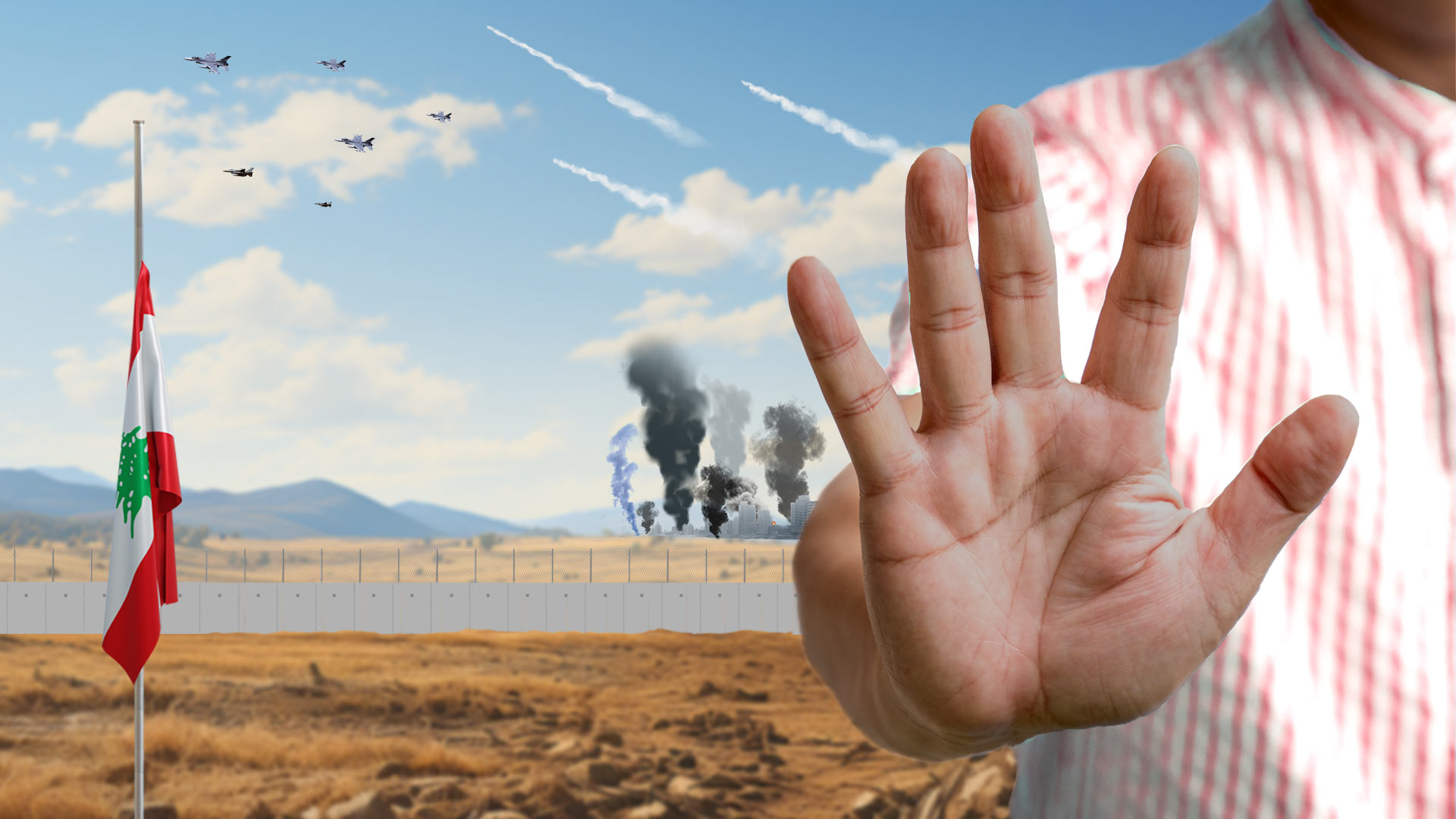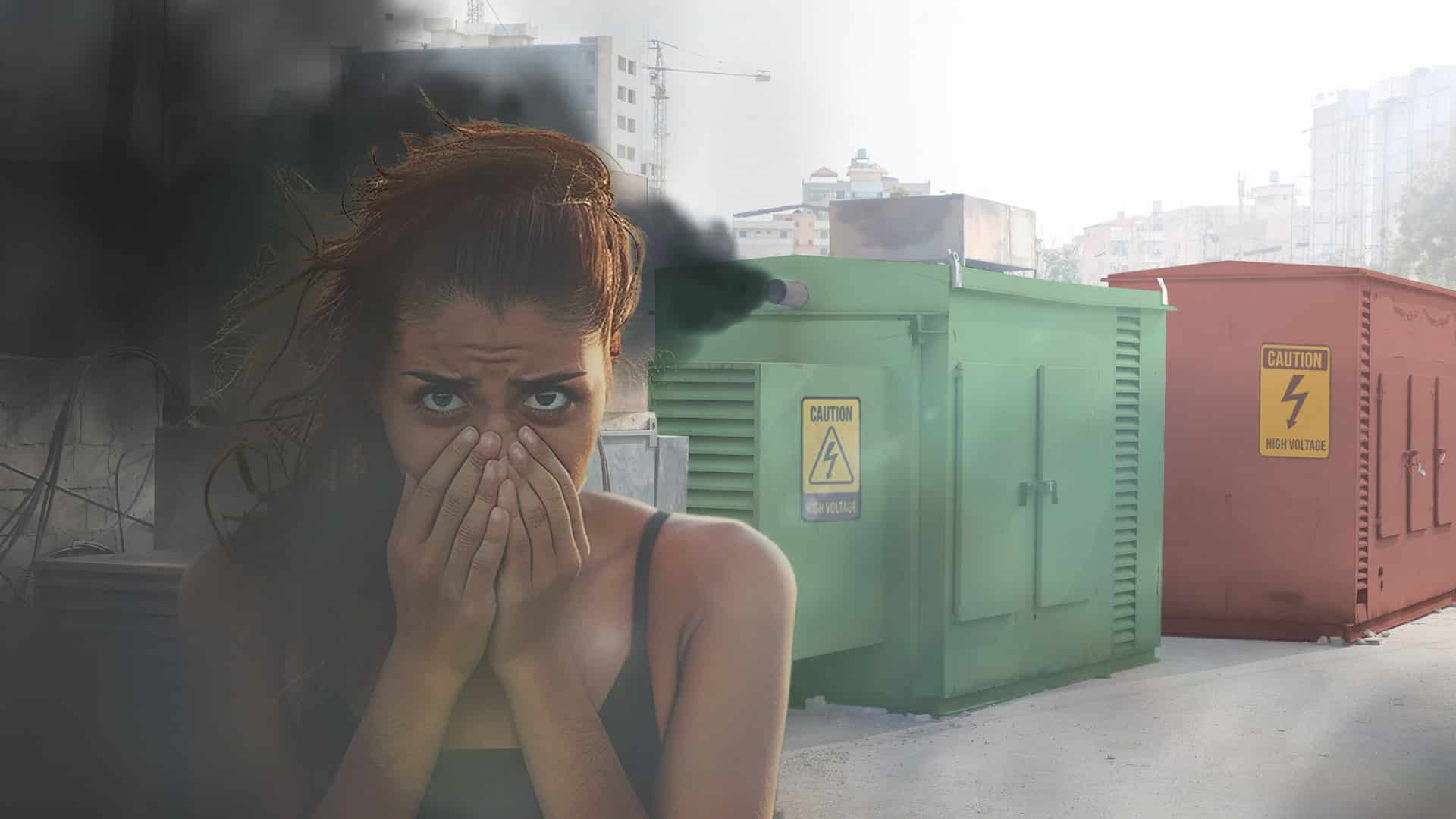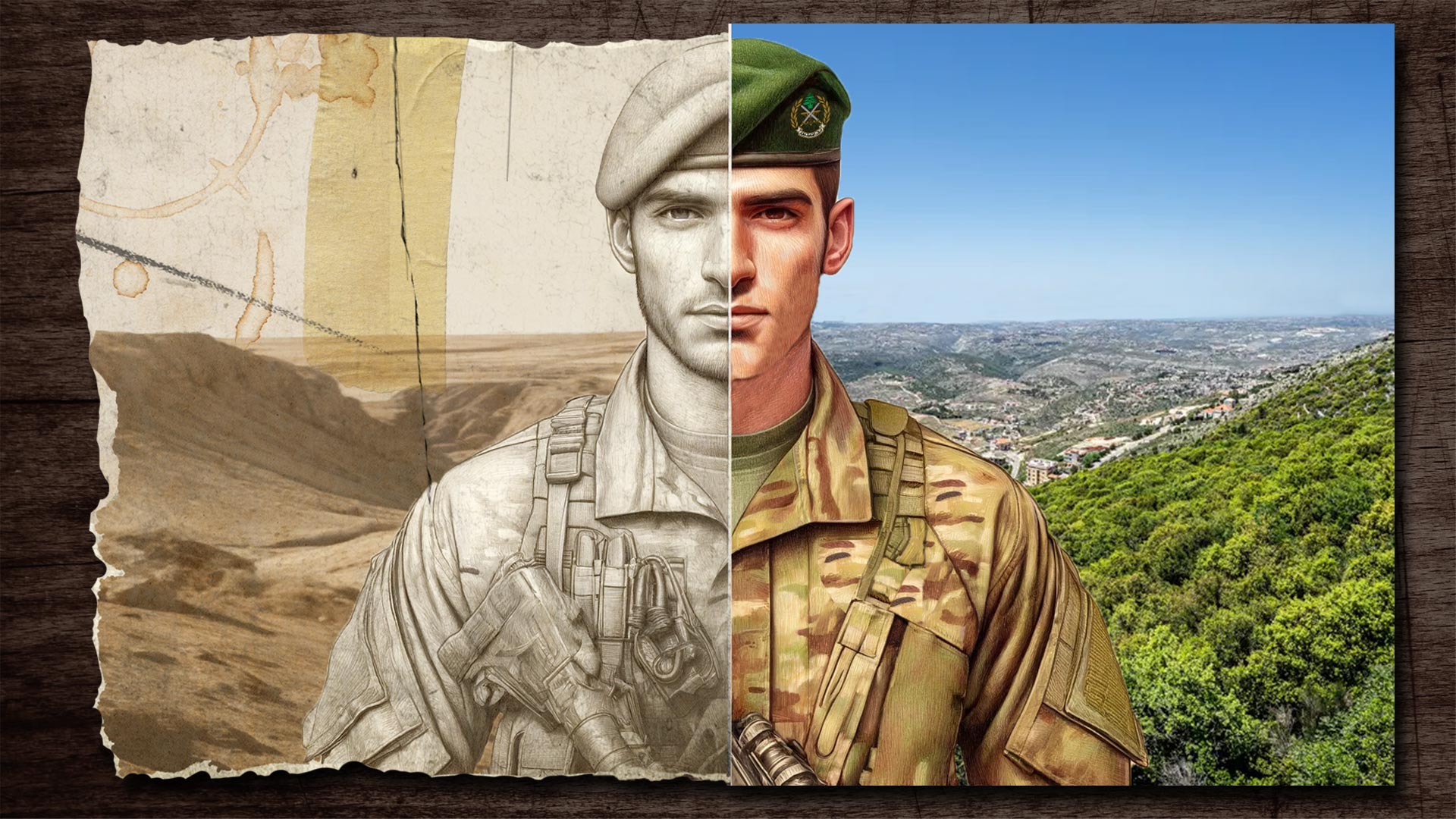In Lebanon we have watched Gazan blood pour through our smartphones and TV screens for more than three weeks now. The savage Israeli bombardment of the besieged enclave is something we Lebanese are well accustomed to. We have a deep understanding of what most nations know too: Israel has no claim to moral high ground. No matter what horrors befell Israeli civilians on October 7, any justification for a measured response has been buried alongside thousands of Palestinian children crushed under the rubble of their homes. In Gaza City, Khan Yunis, Rafah, and neighbourhoods throughout Gaza we have been unable to look away from these images of atrocity, not least because we know we may be next.
As we watch the carnage unfold in Gaza we imagine those scenes in Tyre, Sidon, Beirut, and across our country. We imagine that instead of on our phones and TVs, we are watching the horror unfold on the streets around us. We imagine that it is Lebanese children upon whom the war planes are raining death, while western media reports sanitize suffering and western leaders stand ’shoulder-to-shoulder’ with Israel and the seemingly unconditional ‘right to defend itself.’
Just as previous wars in Gaza pale before the onslaught of today, the war that could occur in Lebanon would be unparalleled in its devastation. Among the threats directed at Lebanon, Israel’s Minister of Economy Nir Barkat said our country would be ’wiped… off the face of the earth’ if Hezbollah attempted to intervene. All of this portends to a wild new embrace of violence by Israeli leaders in a region already well acquainted with their penchant for the barbarous use of force. The inhumanity and bloodlust Israeli leaders are spouting about Gaza is unhinged and likely amounts to incitement to genocide.
Rhetoric aside, since 2006 and the last war between Israel and Hezbollah, the former has received well over $50 billion more in arms and military aid from the United States, meaning its capacity to follow through on its threats has never been greater. With two US aircraft carrier strike groups in the region, Israel would not be alone if the ongoing war expanded to Lebanon or further afield. Make no mistake, Lebanon is already in the crosshairs and there are no strategic or military advances that Hezbollah has made since 2006 that would protect us from being devastated.
Pity the nation
It didn’t have to be this way. If the establishment in Lebanon had some sense, following the 2006 war they could have come together and built the deterrent we need in the form of a national defense strategy. That strategy would have combined all of our national military and strategic assets—not least those of Hezbollah—to counter the main existential threat to our nation just across the southern border. Had we played our cards right, alongside other nations in the region, we may have been able to be a countervailing force and check Israel. Instead, we engaged in political stalemate, assassination campaigns, car bombings and then a real estate boom which left our banks over bloated and affordable housing out of reach for the majority of Lebanese. A disastrous civil war in Syria, a refugee crisis, COVID-19, the Beirut Port Blast and ongoing financial implosion to boot, we are in no position to ‘free Palestine’ from occupation and the ideologies of apartheid and Zionism. Pity the nation that would, atop all these woes, then find itself in an unwinnable war.
For now, this reality seems to be understood by Hezbollah, Iran and its patrons across the region. Hezbollah and Israel remain within the rules of engagement, and as such interests are aligned on both sides of the border. More than that, it has to be said that Hezbollah has also succeeded in drawing tens of thousands of Israeli soldiers to the northern border, which could have been used in the operation in Gaza. But this has come at a price.
Tens of thousands of Lebanese have already been displaced, journalists have been killed, our economy is suffering, and we are not out of the woods yet. As the ground offensive kicks off, and Netanyahu warns of a ‘long and difficult war,’ many analysts believe that the most opportune time to launch a second front would not be now, when Israel has momentum in Gaza. Should Hezbollah truly wish to complicate matters for Israel, it would open a second front when the Israeli army is bogged down in the enclave, forcing it to weigh competing priorities at a much more trying military juncture.
For Iran and Hezbollah, whose founding ideology is based on support of the Palestinian struggle and resistance to Israel, allowing a ground invasion of Gaza to go unanswered would constitute an existential threat. Yet responding would almost assuredly lead to more US intervention, and in turn spur Iranian-allied Axis of Resistance forces in Yemen, Iraq and Syria to also respond. From there, the repercussions spiral into the terrifying and uncertain which bode well for no one.
Not treason or treachery
To avoid such an outcome, we need to get ahead of the narrative that would push Lebanon into the ongoing conflict. Now more than ever wars are fought on the battlefield and on newsfeeds. And while remaining relatively reserved, Hezbollah and its allies need to create fertile public opinion for any action that lies outside the rules of engagement. Already, Hezbollah’s political mouthpieces are signalling that they are only waiting for the right moment to strike. Most likely the tried and tested spin will be that those who oppose Lebanon entering into a war to save ‘the resistance’ are ‘traitors’ and ‘collaborators.’
To this our response must be that no one owns the resistance to the idea of Zionism and the practices of apartheid and occupation. Secondly, we must be clear that the most effective way to support Palestine and its self-determination is to not enter into a war with no clear objective. If the end game is to ‘free Palestine,’ that is not going to happen by starting a regional conflict with the best funded and most technologically advanced nuclear-armed militaries in the world.
A true resistance strategy would be one where there is coordinated action with neighbouring states, where decisions taken by Lebanon are not made by one party, and there is a clear end game. Barring that, we will defend our land with every last bit of our existence, we will speak out and speak loud against Zionism, apartheid, occupation. Our voice will continue to join those around the world—particularly Jewish and progressive voices who oppose the occupation—to finally end the double standards in Western capitals when it comes to Israel’s radicalism, violence and wanton disrespect for International Humanitarian Law.
And yes, we condemn the targeting and hostage taking of civilians by Hamas, but not in a vacuum. We also condemn the idea embodied in the Abraham Accords that peace can be achieved without justice. If our conflict with Israel has taught us anything, it is that when theology acts as the basis of political action and statehood, the result is unending conflict. Ironically, its Hamas, Hezbollah, and Israel that benefit most from the framing of the conflict as a religious one, rather than an intrinsically political struggle for self-determination.
In the short term, we need a ceasefire to stop playing into the hands of Hamas, Hezbollah, and Israel. After that, we must seek a sustainable resolution to this conflict, one where we acknowledge that the end game is a self-determined, viable, sovereign, representative, democratic, secular (and hopefully progressive) state for the people of historic Palestine, in the land of historic Palestine. Who lives and has rights in that state is not for the Lebanese to decide, it’s not for Hezbollah, Iran, Egypt, Saudi Arabia, Europe or the United States to decide; it’s for the people of Palestine to decide, along with those who will one day cease to occupy them.
Editorial Staff
The Badil



